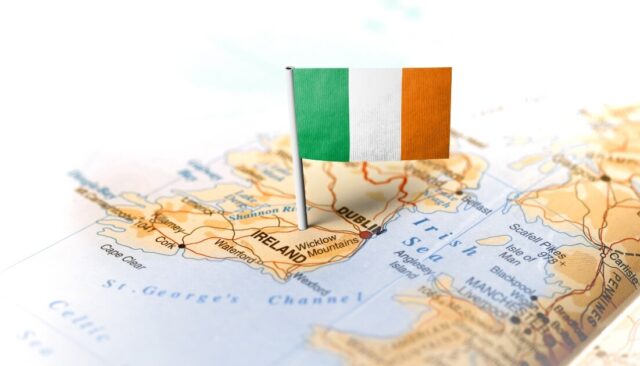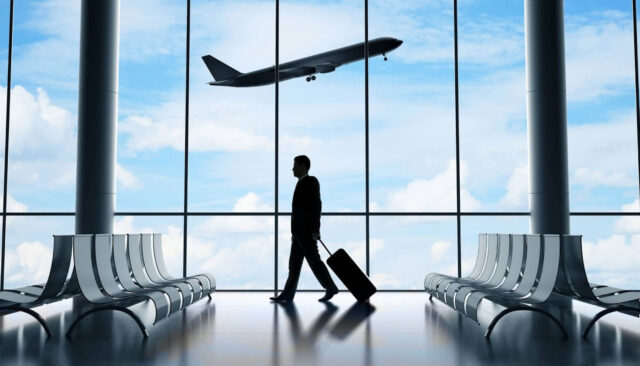Ticking off the ‘big four’ pastas in Rome, diving into turquoise springs in Gozo, or skiing down slopes in the shadow of Switzerland’s Matterhorn… Europe is where culture, food, and the outdoors come together.
But what to pack when travelling to Europe? What to wear in European countries?
With temperature extremes and cultural traditions to take into account, it can be tricky to know where to begin.
In this travel guide, we’ll break down the essentials you’ll need for an epic European adventure, handy packing hacks, and alternative packing options.
With this list of essentials for your Europe visit, you’ll be able to spend more time chowing down on cacio e pepe and tackling black runs than wrestling your sixth pair of jeans into a suitcase.
Timing is everything
Before you even begin to work out how many pairs of socks you’re going to need (really not that many), it’s best to fully understand the context of your trip first.
Do some research into your destination and work out what season it will be when you travel there. This sounds obvious, but it’s essential for effective packing.
You’ll also want to see if the length of time you’re travelling for means your trip will span two or three seasons.
Once you’ve figured out what season it will be when you’re travelling – dig even deeper. Just because summer in your home country might mean clear blue skies and balmy temperatures, it could be the rainy season in the country you’re travelling to, or a time when extreme heat waves are common.
So once you’ve found out which season/s you are travelling in, research what characterises that particular season. This will give you a massive steer about what to pack.
The final piece of season-related research you’ll need to do is into your destination’s social calendar!
See if there are any cultural events happening, parades, street parties or other notable events whilst you’re visiting. This is worth doing so you don’t end up in Venice during carnival without a mask, or at a Greek island paint party without a spare pair of clothes.
Keep in mind that some popular attractions will close on days when events are being held. You’ll want to check that your trip itinerary matches up with your destination’s cultural calendar.
Electronics
When it comes to packing, be strategic. You’re going to want to leave the fun bit (e.g how many puffer jackets can I take without my case bursting) to the end and start with the most-high priority items first.
There’s a few reasons for this. Mainly it’s so that you’re tackling the top ticket items whilst you are fresh and the less stressful things when packing fatigue has started to set in.
It’s also a good idea to do it this way around because you’ll have a better idea of what space is left for clothes, rather than overpacking to begin with and then having to condense.
Adapter
The good news is, most of Europe uses the same kind of two pronged outlets and plug sockets. This keeps things nice and simple as your chargeable items are easily compatible in other countries.
If, however, you’re travelling from or through the UK and Ireland you will need an adapter. That’s because they use a three pronged outlet.
Make this one of the first things you add to your Europe travel packing list. Lots of other electrical items you’re packing will be made redundant if you can’t charge them.
Phone & camera
Whilst your phone will probably be glued to your hand for boarding passes and flight updates, the chances are you’ll be packing your camera. Cameras are a tricky item to pack and often end up getting damaged in transit, but there are a few ways to avoid this.
Your first option is using a luggage delivery service. Whether you’re shipping to Netherlands, shipping from Spain to UK, shipping from Australia to UK or the other way, this is usually a safer way to transport your items as they’re less likely to get lost in transit.
It also means you can pack more and not have to squeeze your camera into a case, which is one of the main reasons they end up breaking.
If you do have to pack your camera be sure to remove the lens and fasten down any loose parts, like the battery compartment and lens cap.
Another helpful tip is to remove the battery and memory card. The last thing you want is to arrive in Croatia, ready to snap pictures of Dubrovnik’s walled city, and find that your camera has accidentally turned on and the battery is drained.
Chargers
Another electronic to add to your list of things to pack when going to Europe – chargers.
Once you’ve got an adapter sorted, pack all the chargers you’ll need for phones, laptops, cameras, and other electronic items you’re bringing.
Whilst it’s fair to assume you can pick these things up when you reach your destination, it’s nice to be prepared. Especially if you have to do some emergency charging at the airport.
Important documents
This is one of the most important parts of any checklist for what to pack when travelling to Europe.
To make sure your trip actually gets off the ground, you’re going to need all the appropriate documents. This includes things like your passport and any proof of vaccinations or medical records you might need. It also includes your visa.
If you’re visiting another EU country for a short trip, you probably won’t need a visa. Switzerland, Norway, Iceland and Liechtenstein only require a visa for trips lasting longer than 90 days or if you are travelling there for work or medical treatment.
You can also hop between ‘Schengen area’ countries without a visa as long as you don’t overstay the 180-day period. Schengen area countries include the likes of Denmark, Finland, Portugal, Spain, Greece and Hungary.
Toiletries
What toiletries and clothes you pack are going to depend on the research you did into your chosen country’s climate at the time of year you’re travelling.
The basics, however, remain the same. Pack your toothbrush, any soaps and shower gels, and makeup products.
Beyond this short list, you’ll need to be more specific to your end destination. If you’re travelling in the summer, a high factor, broad spectrum sunscreen is a must. Particularly if you plan on spending a lot of time outdoors.
Similarly, if you’re heading to an area known for mosquitoes and other insects, pack repellent and any necessary medications. For colder climates you’ll want to make sure you have enough moisturising products packed and also any medications.
An often overlooked part of a what to pack when travelling to Europe guide – a first aid kit. Hopefully you won’t have cause to use it, but packing a light, basic first aid kit is a good idea.
This is particularly true if you’re going for a longer trip. This kit might include bandages, antiseptic wipes, and gloves.
Clothing
You’ve found an adapter, carefully sifted through electronics, and divided your toiletries into clear bags… now it’s time to tackle clothes.
A general rule of thumb is to lay out everything you think you need, and then half it.
The sentiment is true, you’re going to want to pack a lot less than you think you need. But it’s still important to make sure you’re packing the right things.
Travel packing list for Europe in summer
In some ways packing for a European summer is preferable to packing for winter. Temperatures are usually higher so you won’t need to pack as many bulky jackets and fleeces.
The key here is to pack light, thin layers. If you’re planning on hiking Slovakia’s mountainous region or chasing the Northern Lights in Iceland you’re still going to need to be warm.
As well as packing t-shirts and vest, invest in a base layer for colder days and a lightweight jacket that can be folded and packed away. Shorts and lighter linen trousers are a good option in summer, as are swimsuits. A travel packing list for women in Europe during summer might also include loose maxi dresses.
In terms of footwear, flip flops are a no-brainer but also pack appropriately for walking around cobbled towns or taking coastal walks. A supportive pair of trainers is a good option even in summer.
Travel packing list for Europe in winter
One thing stays the same for winter packing, layers are king. In order to avoid stuffing your case full of three thick jackets and having no room for anything else, prioritise layers.
Start with a skiing base layer. These are insulated with heat-trapping fibres, but also ventilated so ideal for layering.
Next, pack thinner fleeces to wear on top, and finally a couple of thick coats for topping off outfits. Accessories during winter travel are more about practicality than style. Swap out any summer rattan purses or straw beach hats for warm, wooly hats, gloves, and scarves.
In terms of bottoms, a good way to boost your warmth without taking up much space in the case is a pair of thermal leggings that can be worn under trousers.
For shoes, pack options which are warm and waterproof. You might want to opt for boots that offer more ankle support than trainers.
Ship Your Items Ahead When Travelling Europe
Whilst a lot of packing guides focus on bringing minimal pieces of clothing and stripping miscellaneous items back to the bare minimum, there is another way. Ultimately, if you really don’t think you can fit everything you need in a suitcase or two, shipping items ahead is a great option.
Companies like Sherpr can give you a quick online quote for over 200 countries, helpful guidance with packing, and then pick your items up and drop them off at a time that suits you. You can even track your items in transit.
Whilst it might seem like a decadent option, the most important thing is enjoying your holiday, not restricting yourself to less items than you’d like.
Plus, it’s cheaper than you’d think!
This can be a particularly useful option for outdoor enthusiasts who are bringing lots of specialist, bulky kit with them, tech-lovers with valuable electronics, and fashion aficionados who are struggling to cut down on clothing. To kick off the process, get a speedy online quote here.



